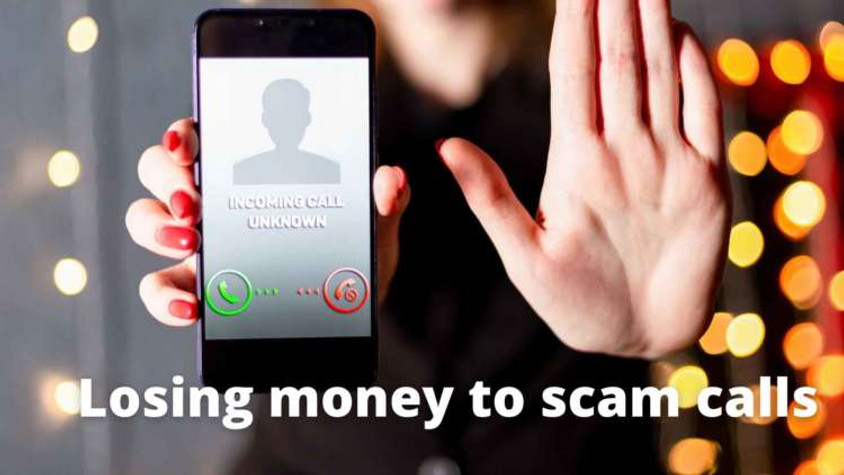12th Jan 2022
Do this to avoid premium rate scams from an 076 number
Regulator warns that number range reserved for radiopagers is being used in new premium rate ripoff
Had a "missed call" recently from an 076 number? It wasn't - it was actually part of a new scam, warns Phone-paid Services Regulator (PSA), the premium phone number regulator.
A number of people have already fallen victim to the scam, judging by the whocallsme site, which aims to offer reverse lookups to landlines for calls apparently coming from non-geographical numbers.
The tale told by bacon98 at the site is quite typical: "No idea why I've called this number twice but it's not a normal mobile number as I've been charged 42.6p+vat per call & I don't know whose number it is!!!"
The structure of the scam is simple enough: the scammers buy up a range of numbers through a network operator, then use automated systems to make "ghost calls" to a huge range of numbers, never completing the call. You get a "call missed" message, call it back, and the network operator charges you the cost of the call - which, because it's ostensibly to a radiopager, costs very much more than a landline or even mobile call. Under the contract, which it thinks is legitimate (after all, perhaps someone set up a company which needed to call lots of radiopagers in a hurry), the network operator then passes a large cut of the proceeds on to the scammers - who soon after disappear with the loot. Then they pop up again a few weeks or months later running a similar scam.
PSA, formerly known as PhonePayPlus, which regulates the £1bn premium call industry in the UK, warned today that it will take "swift action against the misuse of 076 numbers". Which would seem to be swift action against any use of 076 numbers to leave missed calls. Radiopagers, of course, can't make calls.
As PSA explains, those numbers, reserved for radiopaging services, are not allowed to be used to provide a controlled premium rate service and generate revenue.
But, it says,
"Unfortunately, there is evidence that 076 numbers are being used for the same kind of "missed call" scams that have previously operated on the 070 number range. "
Colour us unsurprised: premium rate number scammers are unrelenting in their efforts to whirl up and down the phone number stack in search of niches they can exploit for profit.
PSA says that it "successfully tackled 070 scams through prompt and effective enforcement action, reducing the number of complaints by 69% in the last quarter" and that it "will take a similarly robust approach to any scams operating on 076 numbers and will fulfil its duty to regulate any service that operates, or appears to operate, as a controlled premium rate service, regardless of whether the numbers involved are designated as premium rate in the Ofcom Numbering Plan."
Of course, as with all premium-rate number scams, questions have to be asked too about the network operators that provide the numbers to the scammers. If PSA finds them in breach of practice, it can fine and/or ban them (and frequently has).
That's because there's a chance if you do ring back, you'll fall victim to a scam which could leave you out of pocket.
The following explains more about 'missed call' scams, how to spot them and what to do if you think you may have fallen victim as advised by OFCOM, the UK telecommunications regulator.
How do they work?
Scammers use automated systems to dial mobile numbers.
The call often lasts less than a second and comes up as a missed call.
Calls will typically be from a number beginning 070 or 076 (which look like mobile numbers but cost considerably more to call) or from non-geographic numbers such as those beginning 084, 087, 090, 091 or 118.
Anyone who does call the number back is charged for as long as they're on the phone.
What can you do?
If you receive a missed call from a number you don't recognise, think twice before calling back. Particular care should be taken when responding to calls from unknown numbers beginning with 070/076, 084/087, 090/091 or 118. Genuine callers will leave a voicemail or call back later.
To prevent making accidental or inadvertent calls (such as dialling a number when your phone is in your pocket or bag, for example), remove the suspicious number from your call log. Avoid putting direct-dial shortcuts for friends and family on the home screen of your phone and set up a screen lock. This will prevent all use of the phone until you enter the PIN, pattern or password.
You can also bar calls to international and premium rate numbers. Speak to your provider for advice on how to do this.
If you believe you have fallen victim to a missed call scam, contact your provider as soon as possible.
You should also contact Action Fraud, the UK's national fraud reporting centre. Action Fraud is the reporting centre for fraud and cybercrime in England, Wales and Northern Ireland. Reports of fraud and any other financial crime in Scotland should be reported to Police via 101.

